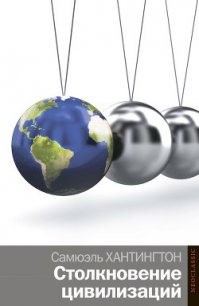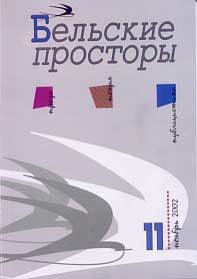Закат Америки. Уже скоро - Капхен Чарльз (читать книги онлайн полностью без регистрации .TXT) 📗
50.Cited in Bailey, «Woodrow Wilson and the Great Betrayal», p. 86.
51.Cited in Knock, «To End All Wars», p. 241.
52.Bailey, «Woodrow Wilson and the Great Betrayal», p. 32.
53.Robert A. Divine, «Second Chance: The Triumph of Internationalism During World War II» (New York: Atheneum, 1967), p. 10.
54.Cited in John A. Garraty, «Henry Cabot Lodge: A Biography» (New York: Knopf, 1968), p. 352.
55.Cm. Bailey, «Woodrow Wilson and the Great Betrayal», p. 61, 115, 193.
56.Cited in Garraty, «Henry Cabot Lodge», p. 312.
57.Cited in Bailey, «Woodrow Wilson and the Great Betrayal», p. 42.
58.The New Republic cited in Knock, «To End All Wars», p. 262; Knock quote from p. 165.
59. Hobson and Oswald Garrison Villard, cited ibid., p. 253.
60.Обзор изоляционизма 1930-х годов см. у Thomas N. Guinsburg, «The Triumph of Isolationism», in «American Foreign Relations Reconsidered, 1890—1993», ed. Gordon Martel (London: Routledge, 1994), p. 90—105.
61.Cited in John Lewis Gaddis, «The United States and the Origins of the Cold War, 1941—1947» (New York: Columbia University Press, 1972), p. 24.
62.Об американской дипломатии и подготовке к войне в 1938—1941 гг. см.: David Reynolds, «From Munich to Pearl Harbor: Roosevelt's America and the Origins of the Second World War» (Chicago: Ivan R. Dee, 2001).
63.Kenneth Davis, «FDR: The War President, 1940—1943» (New York: Random House, 2000), p. 270.
64.Robert Dallek, «Franklin D. Roosevelt and American Foreign Policy, 1932—1945» (New York: Oxford University Press, 1979), p. 283.
65.Ibid., p. 319.
66.Divine, «Second Chance», p. 48—49.
67.Ibid., p. 51.
68.John Culver and John Hyde, «American Dreamer: The Life and Times of Henry A. Wallace» (New York: Norton, 2000), p. 263. Divine, «Second Chance», p. 80.
70.Robert A. Divine, «Roosevelt and World War II» (Baltimore: Johns Hopkins Press, 1969), p. 51—52.
71.Forrest Davis, «What Really Happened at Teheran», Saturday Evening Post, May 20, 1944, p. 44.
72.Cited in Daniel Yergin, «Shattered Peace: The Origins of the Cold War and the National Security State» (Boston: Houghton Mifflin, 1977), p. 45.
73.Одно из принципиальных разногласий между сторонниками Уэллса и ООН состояло в несовпадении взглядов на статус Франции, которая присоединилась к четверым участникам СБ ООН в качестве полноправного постоянного члена.
74.Divine, «Second Chance», p. 142,144,147,153,130.
75.Cited in Gaddis, «The United States and the Origins of the Cold War», p. 29.
76.Trubowitz, «Definingthe National Interest», p. 148.
77.Cited ibid., p. 98.
78.Cited in Divine, «Second Chance», p. 143.
79.Divine, «Second Chance», p. 63.
80.«Washington Dispatches, 1941—1945: Weekly Political Reports from the British Embassy», ed. H.G. Nicholas (Chicago: University of Chicago Press, 1981), p. 518.
81.Senator Robert Reynolds of North Carolina cited in Divine, «Second Chance», p. 152.
82.Cited ibid., p. 242.
83.Clark Eichelberger cited ibid., p. 35.
84.Michael Leigh, «Mobilizing Consent: Public Opinion in American Foreign Policy, 1937—1947» (Westport, Conn.: Greenwood Press, 1976), p. 124.
85.Legro, «Whence American Internationalism», p. 274.
86.Truman cited in Howard Jones, «„A New Kind of War“: America's Global Strategy and the Truman Doctrine in Greece» (New York: Oxford University Press, 1989), p. 43; and Gaddis, «The United States and the Origins of the Cold War», p. 351.
87.Survey conducted by the Gallup Poll and Potomac Associates, as reported in William G. Mayer, «The Changing American Mind: How and Why American Public.Opinion Changed Between 1960 and 1988» (Ann Arbor: University of Michigan Press, 1992), p. 65.
88.«Доктрина Никсона» подтверждала международные обязательства Америки и гарантировала союзникам «ядерный щит». Никсон также заявлял, что «в случае любой другой агрессии мы окажем необходимую военную и экономическую помощь в полном соответствии с условиями двусторонних соглашений. Но нам должны представить действительно вескую причину, чтобы мы согласились послать в страну, которой угрожает агрессия, свои войска». О «доктрине Никсона» см.: Charles A. Kupchan, «The Persian Gulf and the West: The Dilemmas of Security» (Boston: Allen & Unwin, 1987), p. 31– 40.
ГЛАВА 6
1. В терминологии данной книги термин «популистская внешняя политика» подразумевает политику, базирующуюся на трех принципах. Во-первых, политика должна определяться интересами и воззрениями простых американцев, а не только элит Вашингтона и Нью-Йорка. Во-вторых, внешняя политика должна сохранять децентрализованную форму американской демократии и свободы граждан США. Поэтому международные амбиции следует контролировать во избежание чрезмерного усиления федерального правительства и нарушения внутренних свобод. Международные институты в этой связи представляются подозрительными, поскольку они нарушают американский суверенитет и американскую автономию. В-третьих, США должны применять вооруженную силу только в тех случаях, когда возникает прямая угроза их национальным интересам, понимаемым в узком смысле. В исследовании «American Foreign Policy and How It Changed the World» (New York: Knopf, 2001), Уолтер Рассел Мид проводит различие между джефферсо-нианской и джексонианской школами популизма. Хотя большинство современных популистов опираются на обе традиции, я предпочитаю использовать «родовой» термин, дабы подчеркнуть принципиальное различие между современной американской политикой и политикой прошлого. К примеру, Джефферсон восхвалял аграрную Америку, обладающую ограниченным военным могуществом и международными амбициями. С этой точки зрения его позиция устарела – Америка давно стала индустриализированной сверхдержавой. Что касается джексоновского популизма, он совпадает с современным по названию, но не по сути.
2. Cited in Tim Weiner, «Mexican President Warmly Greeted in Washington», New York Times, August 25, 2000.
3. Термин взят из работы Richard N. Haass, «The Reluctant Sheriff: The United States After the Cold War» (New York: Council on Foreign Relations Press, 1997).
4. Cm. Michael R. Gordon and Bernard E. Trainor, «The Generals'War: The Inside Story of the Conflict in the Gulf» (Boston: Little, Brown, 1995), p. 32—34.
5. Karl Mannheim, «The Problem of Generations», in Essays on the Sociology of Knowledge, ed. Paul Kecskemeti (London: Routledge & Kegan Paul, 1952), p. 298.
6. William G. Mayer, «The Changing American Mind: How and Why American Public Opinion Changed Between 1960 and 1988» (Ann Arbor: University of Michigan Press, 1992), chap. 7.
7. 85 процентов американцев от восемнадцати до двадцати девяти лет согласны со следующим утверждением: «Мы должны уделять меньше внимания зарубежным проблемам и сосредоточиться на проблемах домашних». Это на 5—10 процентов больше, чем в старших возрастных группах. «America's Global Role: A Nation Divided?» Princeton Survey Research/Pew, survey conducted in October 1999. Available at: http://www publicagenda org/issues/nationdivideddetail.cfm?issuetype=americasglobalrole&list=6.
8. Elite College History Survey, Center for Survey Research and Analysis at the University of Connecticut, conducted for the American Council of Trustees and Alumni, December 1999. Available at: http://www goacta and Diane Jean Schemo, «Students, Especially 12th Graders, Do Poorly on History Tests», New York Times, May 10, 2002.
9. Jane Perlez, «As Diplomacy Loses Luster, Young Stars Flee State Dept»., New York Times, September 5, 2000. В 2001 году Государственный департамент провел рекламную кампанию своей деятельности. Кампания имела определенный успех: в 2001 году количество заявок на внешнеполитические экзамены значительно превысило показатель предыдущего года. См.: David Stout, «Sign-Ups for Foreign Service Test Nearly Double After 10-Year Ebb», New York Times, August 31,2001. Интерес к работе в Госдепартаменте и ЦРУ также возрос после террористических атак в сентябре 2001 г.




